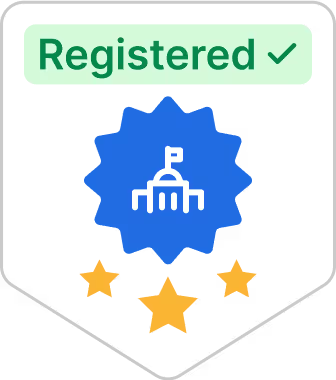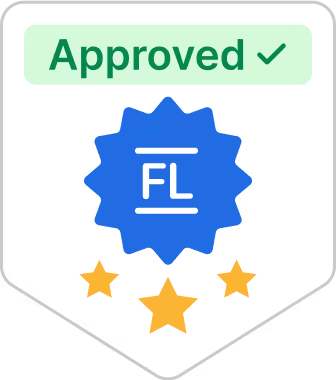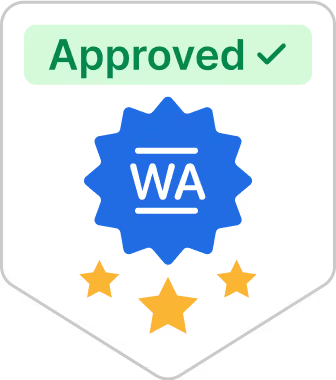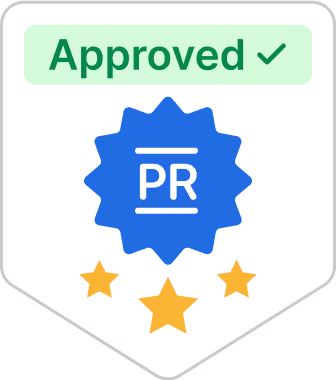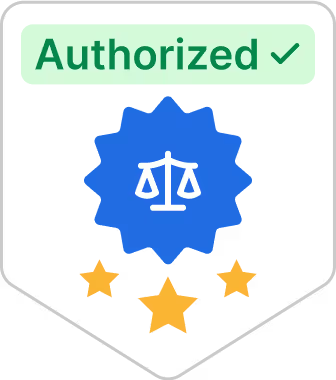What is a sole proprietorship business?

If you’re on your way to becoming a small business owner, you must decide the management structure of that business. Do you find yourself leaning away from legal entities and corporate structures and more toward simplicity?
In these early stages of your business, are you more of a solo supervisor than a team of administrators?
If this sounds like you, you may be interested in being a sole proprietor. Sole proprietors are defined by the IRS as “someone who owns an unincorporated business by himself or herself.”
Ready to dive into the details of this business type? Read on to explore what a sole proprietorship is, how it works, and how this type of business is typically structured.
The business structure
What is a sole proprietorship? In simple terms, it’s an unincorporated business.
Most businesses in the U.S. fall under a sole proprietorship business model, likely due to its flexibility, simplicity, and ability to exert total control.
A sole proprietor refers to the person that owns the business, also known as a sole trader or sole owner. Being the sole business owner means that you and your business are one and the same, and business income and losses affect you and your business equally.
You receive all profits as well as pay personal income tax and a self employment tax. Sole proprietorships are very easy to form which is why many people choose them.
When navigating how to start a sole proprietorship, you must choose a name to operate under. Sole proprietorships can operate under your name or a trade name (For example, Mary Sue vs. Mary’s Garden Supply). Sole proprietorships are an ideal choice for:
- Self-contractors who make their own hours and define their own services
- Consultants that don’t want to become part of a larger company
- Sole owners of businesses who don’t yet have (or want) co-owners
Keep in mind that a sole proprietorship is different from a solo practice. Solo practices are run by licensed professionals (think medical doctors, therapists, lawyers). Like in a sole proprietorship, the solo practitioner is the head of the business and can hire staff. They are not sole proprietors by default and can choose other business styles such as an LLC or S-Corp.
Liability protection
When you establish a sole proprietorship, you are not establishing a separate legal entity. In the eyes of the government and the IRS, you and your business are one.
As a sole proprietor, you operate under the policy of unlimited liability. Unlimited liability means that whatever happens within your business, you take full legal responsibility. With unlimited personal liability, if you take on business debt and cannot pay with business funds, your personal assets and funds may be subject to seizure and sale.
Unlimited liability also extends to any possible lawsuits that may develop in your business. You are not only responsible for your own actions, but unlike an LLC, you are often responsible for the actions of your employees.
For example, let’s say you run a small ice cream parlor. An employee of yours mistakenly contaminates one flavor with another, and a customer with a peanut allergy has an allergic reaction.
If the customer decides to pursue legal action, you as the employer may still be liable because the employee was operating within the scope of their job. This is called vicarious liability, where one person is ultimately responsible for the actions of another.
Taxation
Some may ask “Why would someone form a sole proprietorship vs an LLC?” Sole Proprietorships provide a huge advantage when it comes to tax season and many people go the sole proprietorship route for tax purposes. This is one of the many benefits of sole proprietorships. They are considered a pass-through entity, and the IRS “passes through” your business and goes straight to your personal tax return. In other words, your business income is taxed with your personal income.
In your taxes, you must file a Schedule C and Form 1040. You’ll detail profits (income minus expenses), report losses, and deduct operating costs. All in all, it’s a much smoother tax experience than with a corporation where taxes are filed separately from your own.
Beyond sole proprietorship
Let’s say your small business starts growing fast. You no longer feel comfortable being a sole proprietor and want to spread out any possible liability, as well as business responsibility, in the form of co-ownership. What are your next steps?
Thankfully, sole proprietorships are as easy to dissolve as they are to start. A lack of government involvement means there isn’t too much paperwork involved if you decide to grow your business into an:
- LLC – Limited Liability Company, limits liability for owners
- LLP – Limited Liability Partnership, a general partnership that limits liability owner(s) (whenever two or more people do business together)
- C-Corp – Most common type of corporation, taxed separately from owners
- S-Corp – Corporation taxed under Subchapter S
You can start your sole proprietorship confidently, knowing there’s always an easy route to an incorporated business if needed.
Launch your business effortlessly
If sole proprietorship sounds like the right path for you, make sure you have a strong start. There’s nothing worse than thinking you have all your necessary documents, then going back to realize you missed critical steps in the filing process. Simply fill out this form to get started online today.
We’re here to answer all your burning business questions, make sure your launch is effortless, and speed up your process altogether. Tired of misinformation, long wait times, and expensive sites that promise to build your business for you? Kick all that to the curb and make the start of your small business a breeze.
For all your business and government needs, from starting a sole proprietorship to how to apply for EIN and beyond, we can help.
Sources:
- IRS. Sole Proprietorships. https://www.irs.gov/businesses/small-businesses-self-employed/sole-proprietorships
- Investopedia. Sole Proprietorships. https://www.investopedia.com/terms/s/soleproprietorship.asp
- Investopedia. Unlimited Liability. https://www.investopedia.com/terms/u/unlimited-liability.asp
- Small Business. What Kind of Liability Does the Owner of a Sole Proprietorship Have? https://smallbusiness.chron.com/kind-liability-owner-sole-proprietorship-have-20636.html
- Nolo. How Sole Proprietors are Taxed. https://www.nolo.com/legal-encyclopedia/how-sole-proprietors-are-taxed-30292.html












